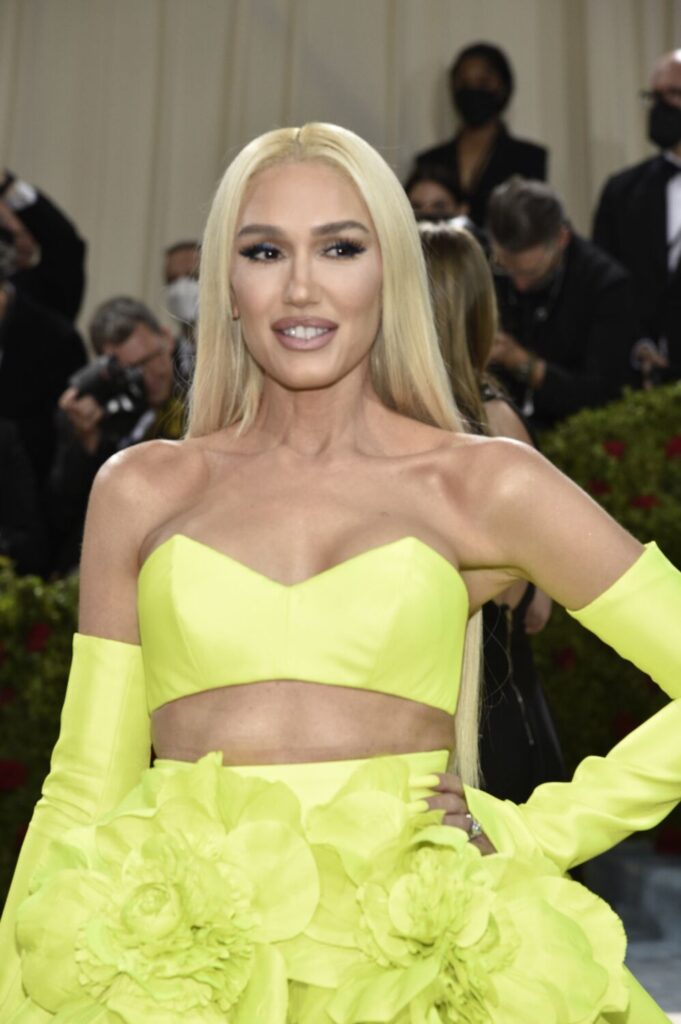Gwen Stefani was given yet another opportunity to address her infamous appropriation of Japanese culture — specifically what she learned from the backlash — and completely botched it.
In a bizarre Allure interview meant to promote her new GXVE Beauty line, the Orange County-bred No Doubt frontwoman instead insisted repeatedly that she is Japanese, reigniting the conversation about cultural appropriation and her long track record of misappropriation, most notoriously displayed in her early 2000s Harajuku Girls era.
Posed with a question by the beauty mag about what she learned from her award-winning Harajuku Lovers perfume, specifically the controversy it sparked, “The Voice” alum recited an oft-repeated yarn about her Italian American father who traveled to and from Japan for 18 years when he worked for Yamaha Motorcycles.
“That was my Japanese influence and that was a culture that was so rich with tradition, yet so futuristic [with] so much attention to art and detail and discipline and it was fascinating to me,” she said. Later, upon traveling to see the Harajuku culture herself, she added: “I said, ‘My God, I’m Japanese and I didn’t know it.” When the comment seemed to give the reporter pause, Stefani doubled down and said: “I am, you know.”
The 53-year-old twice called herself Japanese in the interview with Jesa Marie Calaor — who shared that she is an Asian woman who grew up in New Jersey — and the singer rationalized her offending actions as a cultural exchange rather than cultural appropriation. Stefani added there is “innocence” to her relationship with Japanese culture, referring to herself as a “super fan.”
“If [people are] going to criticize me for being a fan of something beautiful and sharing that, then I just think that doesn’t feel right,” Stefani said. “I think it was a beautiful time of creativity… a time of the ping-pong match between Harajuku culture and American culture. …[It] should be OK to be inspired by other cultures because if we’re not allowed then that’s dividing people, right?”
Calaor wrote that Stefani also referred to herself as “a little bit of an Orange County girl, a little bit of a Japanese girl, a little bit of an English girl” and as “Italian American — Irish or whatever mutt that I am.” Questioning what had transpired in the interview, the writer followed up with Stefani’s rep the day after the interview and the rep indicated that Calaor had misunderstood what Stefani was trying to convey but declined to provide an on-the-record comment or clarification of the remarks.
The singer has repeatedly spoken of her deep love and appreciation for Japanese culture, but, the magazine said, has not publicly expressed outrage or made any statements of support during the recent rise in anti-Asian American and Pacific Islander hate.
Representatives for Stefani did not immediately respond Wednesday to The Times’ requests for comment.
Critics took to social media to dissect the singer’s remarks, while others defended Stefani’s admiration.
“Gwen Stefani used Asian women as props to help her get rich, and her response is… ‘I’m Japanese’????,”the Cut’s writer-editor Olivia Truffaut-Wong tweeted.
“It’s incredible that, almost 20 years ago, Gwen Stefani did an extended race-play act that basically no one would accept today, completely got away with it as everyone forgot, and then proactively brought it up again just now,” Variety’s TV critic Daniel D’Addario added.
“Being a super fan of something doesn’t make you that thing,” another user wrote.
“I don’t think the intent to be harmful is there, but if AAPI ppl have taken offence to her cultural appropriation, then harm has been done. She can take responsibility for the consequences of her actions, even if they didn’t align with her intent,” added another.
“Before reading the article, I assumed that Gwen would note that a recent Ancestry DNA test indicated considerable Japanese ethnicity inheritance…but sadly this is not the case,” an Instagram user commented on Allure’s Stefani post.
In 2005, Stefani launched her so-called Harajuku era while walking the red carpet at that year’s Grammy Awards with a quartet of “Harajuku girls,” named for the fashion-forward Tokyo neighborhood that she referenced throughout her 2004 solo debut “Love. Angel. Music. Baby.” Those are the names she gave each woman in her entourage and later abbreviated them when she launched her high-end L.A.M.B. clothing line in 2003.
The women also appeared in a Japanese-inflected boudoir scene in her “Rich Girl” music video in which Stefani at times sports a white bustier and geisha hairstyle. (Stefani also launched a successful Harajuku Mini children’s clothing line in Target from 2011.)
“A hit is a hit,” Stefani said. “A hit is what makes me tick. The more people I reach, the better.”
Harajuku Lovers was the the fragrance line that she launched in 2008 that faced intense backlash — each of the fragrance line’s five bottles was shaped in a caricature of Stefani and the Harajuku girls and was called out by comedian Margaret Cho at the time.
Prior to that, in the 1990s, the ska artist turned pop star often wore a Hindu bindi and styled her hair in South African Bantu knots. In 2005, Stefani was also accused of appropriating Hispanic and Latino culture in her “Luxurious” music video. Then in 2012, she and No Doubt were accused of appropriating Indigenous culture in their music video for “Looking Hot.”

